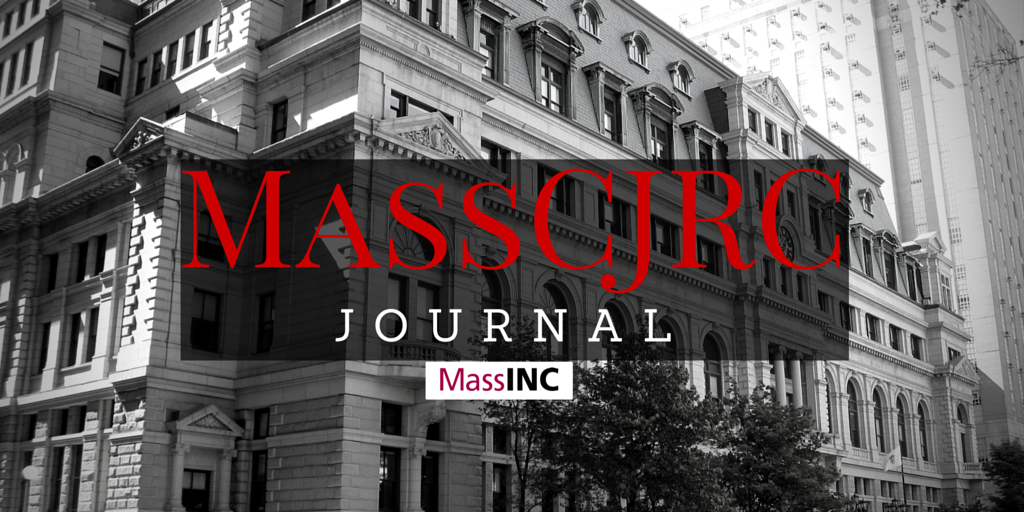
As Massachusetts implements last year’s sweeping criminal justice reform package, we must stay focused on Justice Reinvestment—the effort to squeeze more public safety from limited resources by reducing prison terms and redirecting the savings to behavioral health treatment, education, training, and reentry services. The state budget signed this week by Gov. Baker includes promising new provisions suggesting that state leaders are treating the 2018 bill as a solid foundation for additional reforms, not the last word on the issue.
Over the past decade, Justice Reinvestment’s potential to lower repeat offending drew bipartisan interest to criminal justice reform and propelled the issue to the top of the policy agenda in state legislatures all across the country. But what works on paper is often much harder to accomplish in practice; many states put their toes in the reinvestment waters, only to draw them back when wavelets rippled past.
Criminal justice reformers recognized from the very beginning that winning resources for reinvestment in Massachusetts would be difficult once the spotlight moved on to other issues. To gain better footing for the long term, they lobbied unsuccessfully for provisions in last year’s bill that would have required budget-makers to direct savings from reductions in the prison population to a Justice Reinvestment fund.
While reformers lost that fight, their champions in the Legislature vowed to come back to reinvestment this session, and the 2020 budget contains several provisions that suggest they are making good on their word.
The most significant provision is a change to the $25 million Community Corrections line item. Under current law, the Probation Department’s 17 Community Corrections Centers are unable to provide services to those charged with violent crimes and firearm offenses. These restrictions prohibit a majority of formerly incarcerated individuals from receiving reentry support in their communities when they come home. The exclusion of these higher-risk inmates – the very group that stands to benefit most from reentry support – epitomizes how tough-on-crime era policies remain deeply engrained in law. The 2020 budget eliminates this counterproductive statutory prohibition, incorporating language modeled on legislation filed by Rep. Frank Moran and Sen. Will Brownsberger.
Probation now has $25 million available to help ensure that those returning from correctional facilities have access to the support systems they need to be successful. It is hard to overstate how transformative this change could be, especially in the hands of the capable team Probation Commissioner Ed Dolan has built in his agency. Working creatively, Probation can see that cities receiving large numbers of formerly incarcerated individuals are able to build and sustain community-based reentry programs like the Boston Reentry Initiative and the Worcester Initiative for Supportive Reentry, highly-effective models that unraveled over the past few years when grant funding expired.
The second promising development is a provision creating a commission to examine correctional expenditures in Massachusetts. This language is very similar to language that died last year when the Legislature choose not to act on an amendment Gov. Baker offered, which would have slightly changed the commission’s makeup.
Tried and true criminal justice reformers are understandably skeptical when they hear the word commission. However, in this instance, there are at least two reasons to be optimistic. First, in contrast to many commissions led by agency heads, this body will be co-chaired by appointees of the House speaker and Senate president. This makes it possible to build a commission that can exercise more independence. Second, the budget also contains a $100,000 appropriation to support the work undertaken by the commission. While modest, these funds allow the body to cover staffing and analytical expenses.
By identifying and validating ways to realize significant savings from declining prison populations, the commission can provide a blueprint for scaling and sustaining new initiatives, including $4.5 million that the budget appropriates for residential reentry programs and $2 million for emerging adult reentry services. These new accounts, which represent small Justice Reinvestment victories in their own right, have real potential to amplify the work of newly empowered Community Corrections Centers. Equally important, they put community-based organizations in a better position to demonstrate their ability to deliver services that reduce recidivism. If they get the job done, criminal justice reformers will be able to make a very strong case for acting on the commission’s reinvestment blueprint.
It’s important to recognize the full potential of this strategic victory. Many members of the criminal justice reform community are rightly concerned about lack of progress on a slew of other reform measures. However, change never comes all at once. Money is often key to driving transformation, and the 2020 budget provisions are a meaningful win.